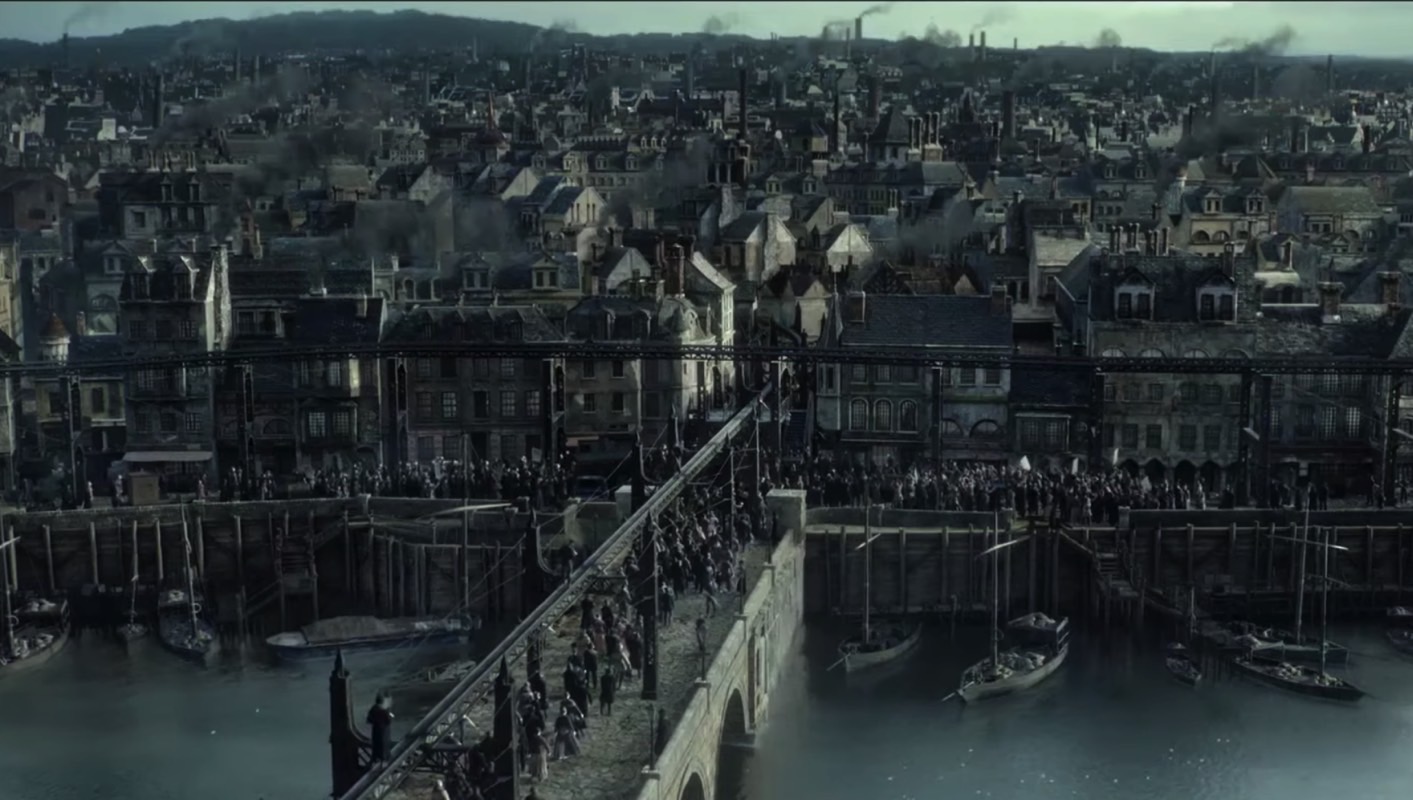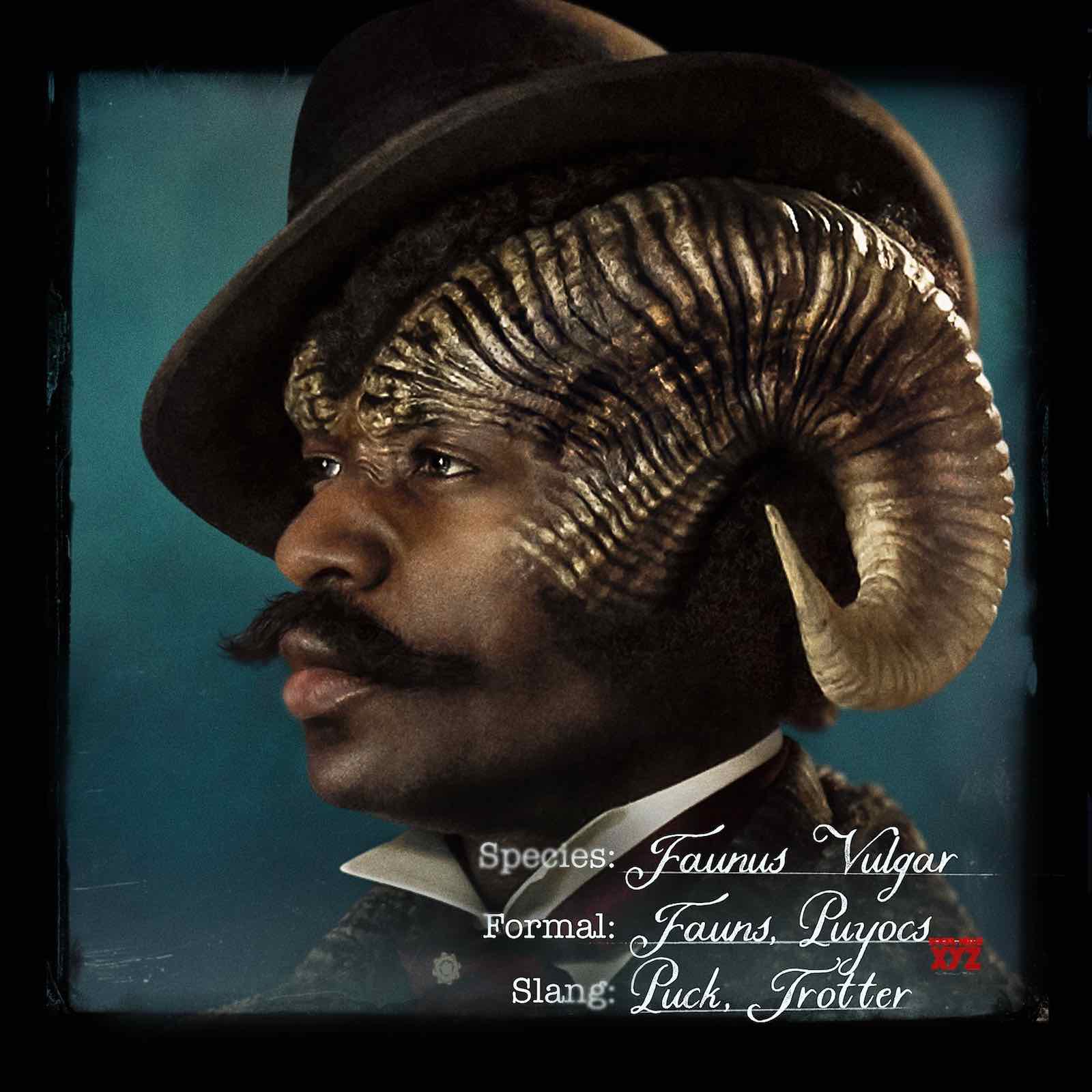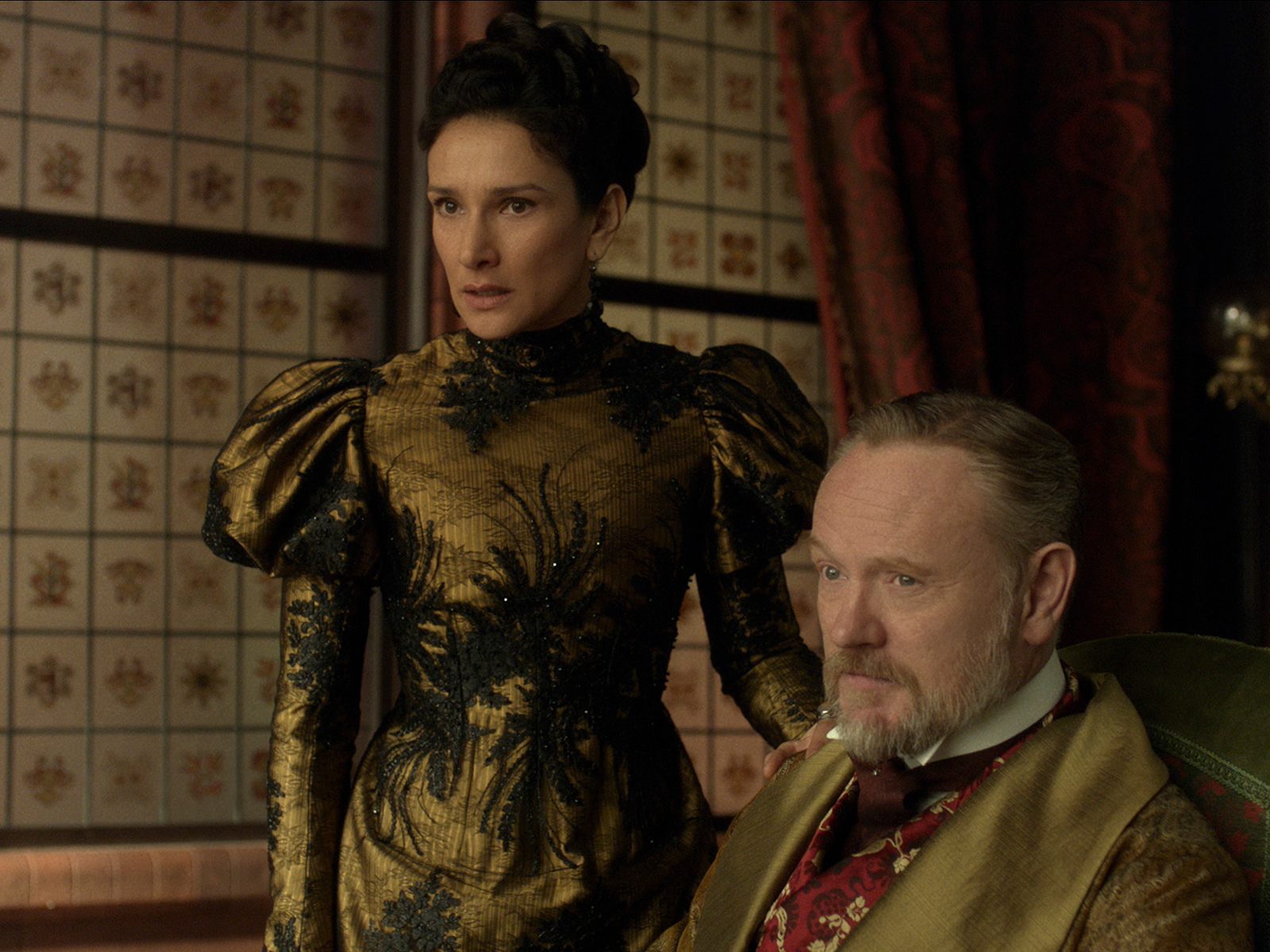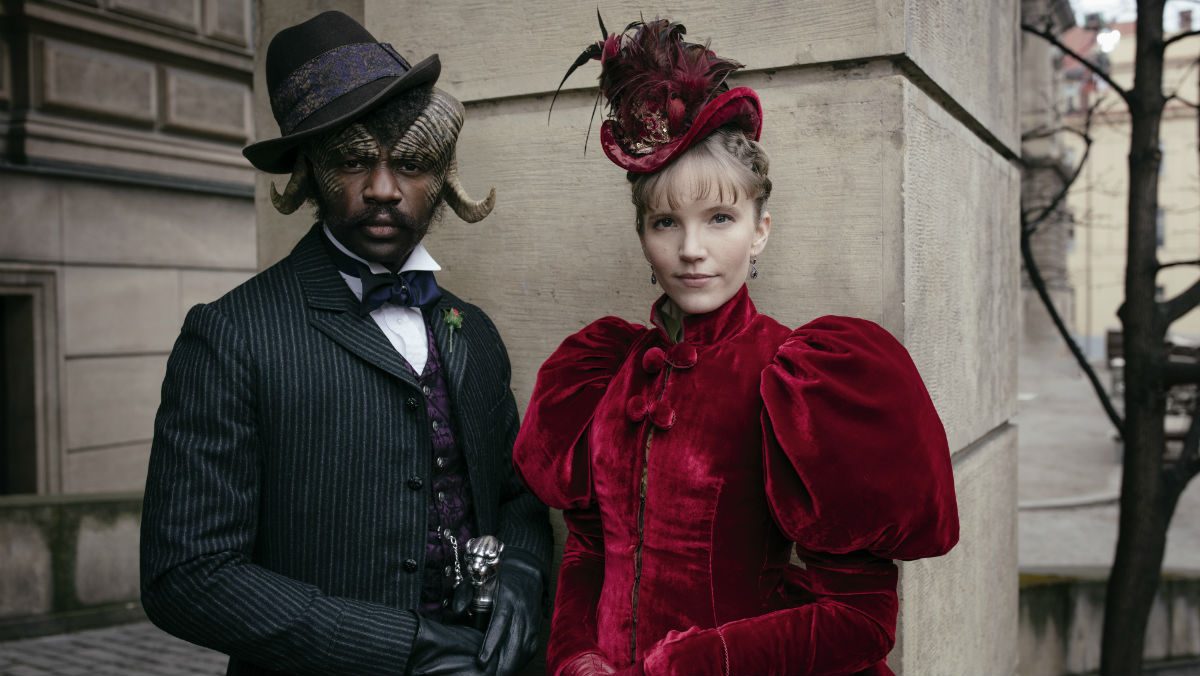Carnival Row
, now streaming on
In the first part of this review, I told you that Carnival Row doesn’t have to be the next Game of Thrones to succeed. At the time, I had five episodes under my belt out of the eight of the first season. And I had high hopes for the remaining three. But having finished the first season of Carnival Row, I’m now convinced that the whole thing is an expensive miss for Amazon. Yes, the company renewed it for a second season, but it’s not something I’m interested in watching more of after the disappointing first season.
As I’ve already explained, what really captured my attention in Carnival Row was the setting. Amazon delivers an ambitious world populated by flawed humans and mythical characters, but it’s all set in a 19th-century London-like universe. That’s a stark departure from other fantasy stories that are usually set is the Middle Ages. And Amazon went out of its way to deliver this fantastic world, creating the perfect background for the story.

Three episodes ago, however, I was curious about what happened next. I was interested in more character and plot development, and I was wondering how on earth Carnival Row would turn me into a loyal fan, hoping for a clever cliffhanger.
I now have the answers to those questions, and I’m somewhat disappointed with all the missed opportunities.
It turns out that what we were witnessing all along was a complicated crime story that doesn’t really need a second season. That Harry Potter darkness that I liked wasn’t that dark after all. Philo (Orlando Bloom) solved the case he was working on, finding out disturbing answers to some of the questions he may have had growing up. We knew he was a half-blood — half-faerie and half-human — an abandoned child who never understood what had happened to him. But he only got those answers because the villain of Carnival Row, now dead, wanted to assassinate the constable. And now that the crime was solved, and Philo survived, there’s no real cliffhanger keeping me glued to the series — it’s not like I’ve felt at any point throughout the series that I just couldn’t put it down.

It doesn’t help that some of the characters that I cared most about during the series are now dead, whether it’s the witch able to concoct all sorts of dark magic recipes, or chancellor Absalom (Jared Harris), and his wife Piety (Indira Varma), both connected to the assassination plot. It turns out that Absalom was Philo’s father all along. Piety, meanwhile, had an affair with Absalom’s most prominent political rival many years ago, the leader of the opposition party in the Burgue, which happens to hate the mythical species that populate the Row. That liaison resulted in a pregnancy; a boy (Jonah, played by Arty Froushan), who is also the heir to the Burgue’s chancellory. And as soon as Piety found out that her husband fathered a bastard unbeknownst to him years before meeting her, she set in motion a series of events that turned her into the most sought after serial killer in the Burgue. While the city was focused on the mysterious crime wave, a radical Puck religious group targeted the chancellor, looking to send a message to the Burgue by killing the leader of the country.
What this somewhat complex Jack-the-Ripper-style crime story really helped Carnival Row achieve was a pivot to a Game of Thrones type of story. I said before that Amazon’s fantasy didn’t have to be Game of Thrones to succeed, but the plot of season one primes the series for a Game of Thrones-like evolution.
We’ve got a brewing political and potentially religious conflict between humans and all the other species, as the creatures find themselves boxed in a ghetto following the recent events. It’s not a stretch to imagine that, going forward, the series will continue to build up this conflict to a potential war, especially given that Philo should be the chancellor’s true successor until new elections are held. It’s going to be, in all seriousness, a game of thrones between the creatures led by Philo and Vignette, and the humans, led by Jonah and Sophie. Who’s Sophie again? Why, Jonah’s step-sister, the highly intelligent machiavellian daughter of Absolom’s rival. She gets a late introduction in the series, which is another missed opportunity, given that she’s the one who set in motion the chain of events that turned Piety into the villain of the story.

But I’m uninterested in learning what happens next. Like I said, some of the characters that I cared most about are already gone. Jonah and Sophie, as emerging villains, aren’t at all appealing. They’re half-siblings involved in an incestuous relationship and political adversaries/partners — cue the parallels to Cersei and Jaime. The Lannisters, however, are well-written characters. Villains, most of the time, yes. But Cersei and Jaime are characters that hooked me from the earliest moments of Game of Thrones season 1.
If you’re wondering whatever happened to Vignette Stonemoss (Cara Delevingne) in the last three episodes, well, so am I. I thought she was going to be one of the main characters of the show, but she’s mostly a supporting character. She’s only there to help flesh out Philo’s backstory, and she’s there to save his life when Piety’s monster almost kills him. Too bad that Beacham didn’t give Delevingne a better arc and more responsibilities. I thought the most important female character in Carnival Row — well, faerie female — deserved a better overall story and arc in season one and Delevingne could have definitely pulled it off. Alas, another missed opportunity.

Finally, I can’t ignore David Gyasi and Tamzin Merchant who play Agreus and Imogen. They’re both part of the aristocracy of this world. But he is a puck who started as basically a slave, building his way up towards immense riches. She is the heiress of one of the most influential human families in the Burgue, although there’s not much fortune to her and her brother’s names. Under normal conditions, Imogen would never interact with a creature such as her rich new neighbor Agreus. She needs the money, while the puck needs access to the high society of Burgue, where beings such as pucks do not yet belong. And that’s how we get one of the most interesting relationships of the series, one that turns into an unexpected love story. How does it all connect to the overall plot of Carnival Row? It doesn’t. Not really, other than to help paint the considerable disconnect between people and the mythical creatures they have to accept as refugees in their world. Going forward, the two might end up financing the creatures of the Row as they face the rest of the Burgue. But that’s just speculation about a season two I’m unlikely to watch.
Ultimately, Carnival Row is like a video game with amazing visuals and special effects, and a massive open world worth exploring. Too bad the story and gameplay aren’t on par with everything else. If you’re like me, you’ll probably drop it soon and forget all about the second season that’s already in the works.








